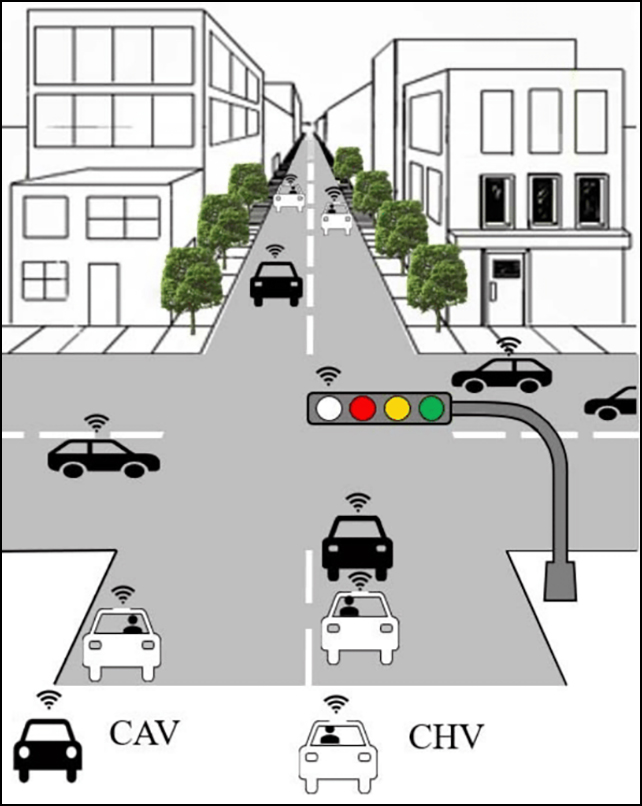In a hypothetical future where autonomous cars trundle up and down our busy roads, traffic lights might have a fourth color installed, one added for the benefit of those self-driving vehicles.
Researchers at North Carolina State University are proposing an additional white traffic light that would signal to drivers autonomous vehicles (AVs) are managing the upcoming intersection of traffic flow intelligently. The thinking is that both traffic congestion levels and overall fuel consumption could be reduced.
The cars and trucks that are driving themselves won't need to 'look' at the white traffic light, because they'll be communicating with it wirelessly. However, it will act as a sign to human drivers and passengers that they should follow the lead of the self-driving vehicles moving through the intersection.

"Red lights will still mean stop. Green lights will still mean go. And white lights will tell human drivers to simply follow the car in front of them," says civil engineer Ali Hajbabaie.
"This concept we're proposing for traffic intersections, which we call a "white phase", taps into the computing power of autonomous vehicles."
Here's how it would work: autonomous vehicles would be in communication with each other and with the traffic lights at intersections, within a certain range. That would enable them to coordinate traffic flow more efficiently and intelligently – giving priority to the converging roads with more vehicles on them, for example, and advising on optimal speeds.
Any human drivers in the mix would be informed to follow the lead of the vehicle in front of them via the white light: stop if it stops, continue if it continues. Once the number of autonomous vehicles at an intersection drops below a certain threshold, the traffic lights would revert back to the normal red, amber, and green option.
In simulated models, AVs were shown to improve traffic flow on their own, and even more so when the white phase was introduced – which then has positive effects on reducing fuel consumption. The higher the percentage of AVs at an intersection, the faster the traffic moved, with improvements of about 40 to 99 percent in terms of total delay reductions possible.
"Granting some of the traffic flow control to the AVs is a relatively new idea, called the mobile control paradigm," says Hajbabaie. "It can be used to coordinate traffic in any scenario involving AVs."
"But we think it is important to incorporate the white light concept at intersections because it tells human drivers what's going on, so that they know what they are supposed to do as they approach the intersection."
The researchers note that once the number of autonomous vehicles at an intersection goes above 30 percent, the improvements become more significant. With 70 percent of AVs in the traffic, the intersection can run mostly as a full automatic white phase mode.
We don't yet have the technology to implement something like this, though improvements are being made all the time. This study builds on a previous investigation from 2020 by the same researchers where traffic flow was controlled by a central computer linked to the intersection – here, the computing necessary can be managed by the self-driving cars themselves.
Upgrading every road intersection will take time and money of course, but the researchers think that certain aspects of the white phase idea could be implemented relatively easily. Test runs in specific areas could be the next step forward.
"Ports see high volumes of commercial vehicle traffic, for which traffic flow is particularly important," says Hajbabaie. "Commercial vehicles seem to have higher rates of autonomous vehicle adoption, so there could be an opportunity to implement a pilot project in that setting that could benefit port traffic and commercial transportation."
The research has been published in IEEE Transactions on Intelligent Transportation Systems.
